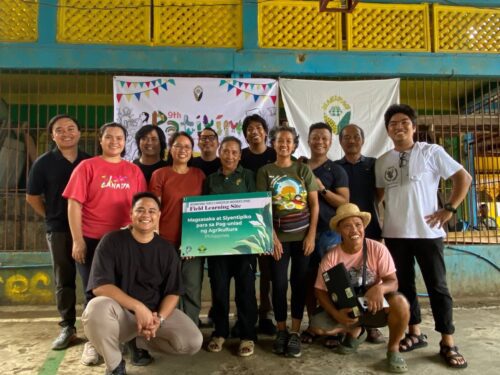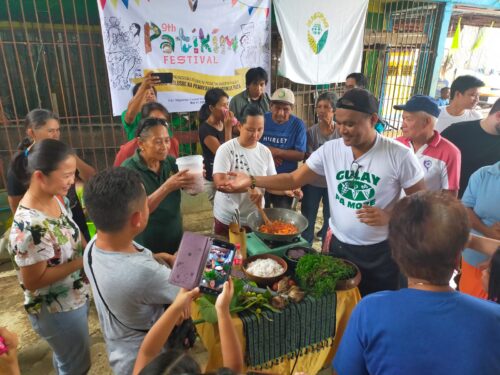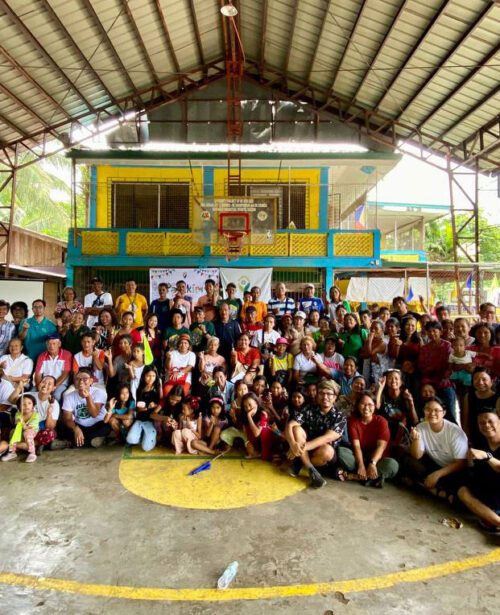It was a hot and humid morning inside Bgy. Magsaysay’s basketball court where the farmers’ festival would take place. While the province of Quezon, much like the rest of the Philippines, was already at the tailend of an especially ferocious summer marked by record-breaking heat, that day there was hardly any cool breeze to provide some relief to the muggy weather.
Spirits ran high nonetheless. There was lively chatter as members of the different farmers’ organizations from the network of IPAM field learning site MASIPAG in the municipalities of Real, Infanta, and General Nakar (REINA) streamed in with the different dishes they prepared the previous day showcasing their organic harvests with pride. Guests and fellow farmers lifted the lids off pots and food trays, asking how the dishes were prepared and whetting their appetites in the process. Available as well were products that the farmers processed themselves from their surplus, which people could buy but also sample freely: native rice cakes, cassava and taro chips, pickled green papaya and local vinegars, ground turmeric and ginger, cocoa powder, small batches of palm liquor and wines from native berries sapinit and lipote, among many others. A few farmers also brought small bags of edible plants foraged from the wild that they wanted to introduce to more people so these would not disappear from their diets and remain part of their culture and environment.
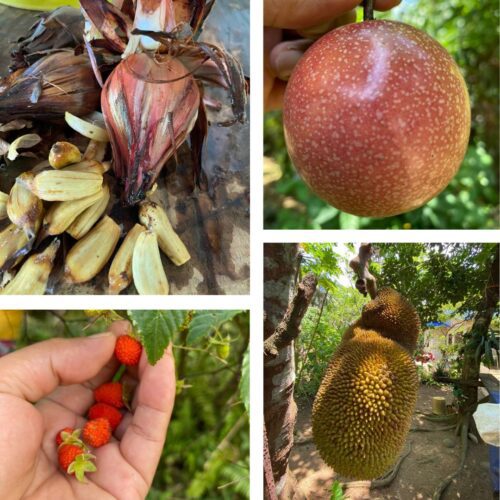
Indeed there was much to celebrate—and not just the abundance and diversity central to any harvest festival, although that was apparent and truly worth celebrating. Ask the different farmers what PATIKIM, which means to offer a taste, is all about and their answers went beyond the delicious local cuisine available for sampling. In fact, each of them shared the same answer: PATIKIM is about freedom.
Freedom from what, exactly?
The joyful mood belied the tragedy at the root of the fiesta. In late 2004, four typhoons hit Quezon province in succession, causing landslides in the uplands where commercial and illegal logging were rampant and the Agos river to swell considerably. Within the hour, there were flash floods in low-lying areas and along the coast such as the municipalities of REINA. All of a sudden houses and buildings were destroyed by the rush of water carrying giant logs, and people, animals, and objects rapidly disappeared, as 80% of the area was swept under thick mud and large boulders. When the flood subsided it was learned that more than 1,500 Filipinos died.
Farmer Virginia Nazareno or Nanay Virgie recalled how she could not speak for a week after seeing the extent of the destruction in her community, and the depths of brokenness and grief of neighbors, friends, and family members who survived but suffered unspeakable losses. But amidst the despair she witnessed the power of communities organizing themselves to prevent such tragedy from happening again.
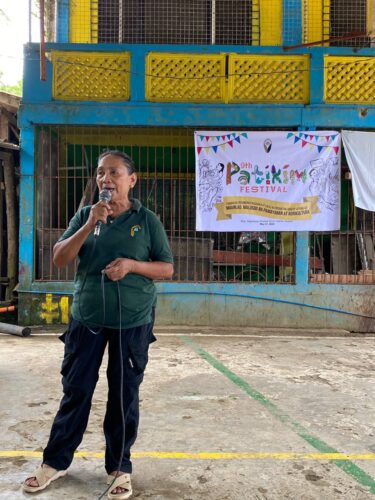
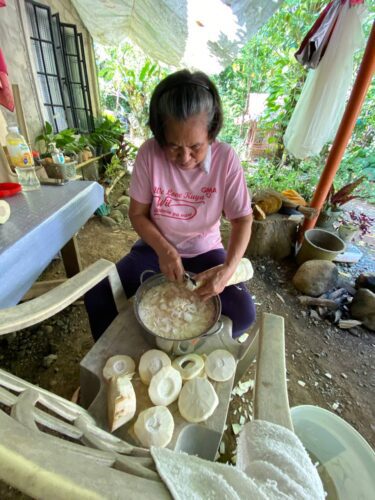
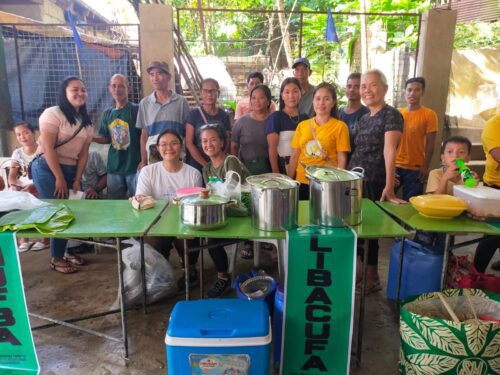
The Catholic Church-led Social Action Center of Infanta connected farmers like Nanay Virgie to MASIPAG for the farm rehabilitation and livelihood program. Previously practicing conventional agriculture, the farmers learned of sustainable, chemical-free farming practices that promote biodiversity, especially the planting of endemic species, to protect and rehabilitate the forest ecosystem that they realized was vital to their food sufficiency and their communities’ resilience, especially as the climate crisis intensifies. The processing of organic crops and fruits gave the community additional income so that they would learn to value the forest. The farmers learned to lobby with their local government for the protection of the environment, leading to a provincial-wide network of farmer-leaders advocating for organic agriculture and the passing of a municipal ordinance in General Nakar that promotes organic agriculture and supports farmers who wish to free themselves from chemical dependence to agroecology.
Our freedoms are bound together
This year’s PATIKIM was also the first time the farmers invited consumers to join the celebration. IPAM field learning site Good Food Community, which advocates for people-led alternative food networks through its practice of community-supported agriculture, brought chefs and advocates for food sovereignty and biodiversity from Metro Manila to help prepare the local dishes that would be served at the fiesta. Sharing in the labor of feeding a community, everyone had a chance to learn directly from the farmers about the current condition of Philippine agriculture and how food system transformation is a shared responsibility.
It has been two decades since the 2004 disaster, and PATIKIM, now on its ninth year, is a way for the farmers to not only thank everyone who helped their communities through those dark times, but to show agroecology’s ability to feed communities and fight climate change. According to Nanay Virgie, who is now the chairperson of MASIPAG’s Board of Trustees and a farmer-trainer in agroecology, this is especially important for hazard-prone areas like Quezon province and the Philippines, which is visited by at least 20 typhoons annually and is at the top of the global climate risk index. So-called modern agriculture promotes the use of chemical fertilizers and pesticides along with techno-fixes that their manufacturers position as “climate smart,” but in truth disempowers farmers and traps them in debt by making them dependent on their use while destroying the very ecosystems meant to promote our resilience amidst the cascades of ecological disasters wrought by the climate emergency. PATIKIM is all about asserting the farmers’ freedom to grow food and feed our communities in a way that is safe, just, humane, and enduring. ##
